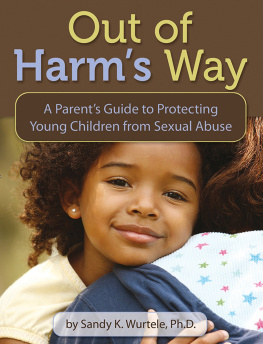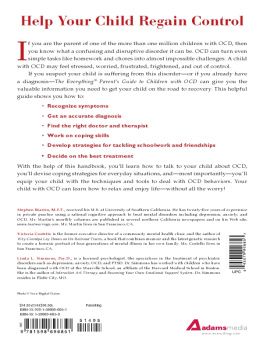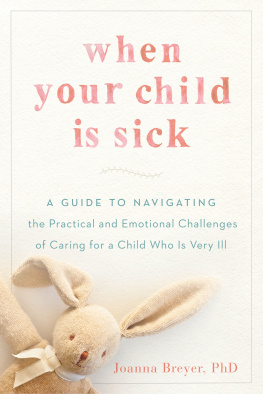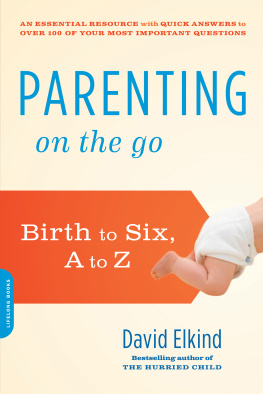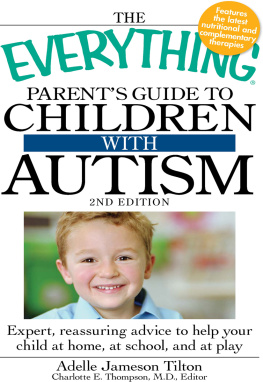A broad-ranging series that publishes scholarship from various disciplines, approaches, and perspectives relevant to the concepts and relations of childhood and family in Canada. Our interests also include, but are not limited to, interdisciplinary approaches and theoretical investigations of gender, race, sexuality, geography, language, and culture within these categories of experience, historical and contemporary.
ABUSE OR
PUNISHMENT?
VIOLENCE TOWARD CHILDREN IN
QUEBEC FAMILIES 18501969
MARIE-AIME CLICHE
TRANSLATED BY W. DONALD WILSON

Wilfrid Laurier University Press acknowledges the support of the Canada Council for the Arts for our publishing program. We acknowledge the financial support of the Government of Canada, through the National Translation Program for Book Publishing for our translation activities. We acknowledge the financial support of the Government of Canada through the Canada Book Fund for our publishing activities.

LIBRARY AND ARCHIVES CANADA CATALOGUING IN PUBLICATION
Cliche, Marie-Aime
[Maltraiter ou punir? English]
Abuse or punishment? violence toward children in Quebec families, 18501969 / Marie-Aime Cliche ; translated by W. Donald Wilson.
(Studies in childhood and family in Canada)
Translation of: Maltraiter ou punir?
Includes bibliographical references and index.
Issued in print and electronic formats.
Mostly in English with some French.
ISBN 978-1-77112-063-0 (pbk.).ISBN 978-1-77112-065-4 (epub).
ISBN 978-1-77112-064-7 (pdf)
1. Child abuseQubec (Province)History19th century. 2. Child abuse Qubec (Province)History20th century. 3. Corporal punishment of children Qubec (Province)History. 4. Discipline of childrenQubec (Province)History. 5. Child rearingQubec (Province)History. I. Wilson, W. Donald, 1938, translator II. Title. III. Title : Maltraiter ou punir? English. IV. Series: Studies in childhood and family in Canada
HV6626.54.C3C5413 2014 362.760971409034 C2014-902730-3
C2014-902731-1
Front-cover image by Odette Vincent, Les dfauts de nos enfants, Lducateur, suppl. to La Famille 6/3 (Nov. 1942), 95. Reproduced with permission. Cover design and text design Sandra Friesen.
Copyright 2007 by ditions du Boral. Originally published as Maltraiter ou punir? La violence envers les enfants dans les familles qubcoises, 18501969.
English translation
2014 Wilfrid Laurier University Press
Waterloo, Ontario, Canada
www.wlupress.wlu.ca
This book is printed on FSC recycled paper and is certified Ecologo. It is made from 100% post-consumer fibre, processed chlorine free, and manufactured using biogas energy.
Printed in Canada
Every reasonable effort has been made to acquire permission for copyright material used in this text, and to acknowledge all such indebtedness accurately. Any errors and omissions called to the publishers attention will be corrected in future printings.
No part of this publication may be reproduced, stored in a retrieval system, or transmitted, in any form or by any means, without the prior written consent of the publisher or a licence from the Canadian Copyright Licensing Agency (Access Copyright). For an Access Copyright licence, visit http://www.accesscopyright.ca or call toll free to 1-800-893-5777.
CONTENTS
PART I
In the Good Old Days: A Rural Society, 18501919
PART II
An Urban Society, 19201939
PART III
From World War II to the Quiet Revolution, 19401969
LIST OF TABLES AND BOXES
LIST OF ILLUSTRATIONS
ACKNOWLEDGEMENTS
I wish to thank all the individuals and organizations that have made it possible for me to write this book: the Canadian Social Sciences and Humanities Research Council for the grant that allowed me to carry out the research on which this book is based; the Human Resources office at UQAM, which awarded me a completion grant to write it; the colleagues and friends that discussed different theoretical, methodological, and technical aspects with me, especially Michelle Perrot of Universit Paris VII, Anne-Marie Sohn of the Universit de Rouen, Jean Trpanier of the Universit de Montral, the late Jean-Marie Fecteau, Fernande Roy, and Paul-Andr Linteau of UQAM; the librarians and archivists who helped me gain access to the documents, especially those at UQAM, the National Library of Quebec, the National Archives of Quebec in Quebec City and in Montreal, and the Montreal Pre-archive Centre; the staff at ditions du Boral, and all the students at UQAM who helped to assemble the sources: Marie-Jose Bchard, Nathalie Blanchette, Rachel Bolduc, Fanny Constantineau, Daniel Dicaire, Carolyne Hbert, Tara Landry, Danielle Laurendeau, Isabelle Moreau, Bastien Pelletier, Lucie Quevillon, Marie-France Ren, Hlne Sguin, Olivier Shareck, and ric Vaillancourt.
INTRODUCTION
Today Canadian society is almost unanimous in condemning violence toward children. It considers the murders and sexual abuse to which they are subjected to be the worst kind of crime, and it even questions the use of corporal punishment in child-rearing. As these lines were being written, the Supreme Court of Canada was imposing very narrow limits on the interpretation of Section 43 of the Criminal Code:
Every schoolteacher, parent or person standing in the place of a parent is justified in using force by way of correction toward a pupil or child, as the case may be, who is under his care, if the force does not exceed what is reasonable under the circumstances.
The repeal of this article, which some consider unconstitutional and contrary to the Charter of Rights, would have represented an official disavowal of a tradition whose origin is lost in the mists of time. However, the highest court in the land did not dare to go that far.
For thousands of years beating has been considered a normal principle of child-rearing. Biblical quotations such as He that spareth his rod hateth his son: but he that loveth him chasteneth him betimes (Prov. 13:24) and Foolishness is bound in the heart of a child; but the rod of correction shall drive it far from him (Prov. 22:15) attest to both the antiquity and the legitimacy of the practice. The same tradition is found in Eastern countries. Rarely has a civilization failed to adopt it, so that the first French missionaries who came to Canada in
With only a few exceptions such as Quintilian and Montaigne, Western advisers on parenting have long recommended that childrens misdemeanours be sanctioned with moderate corporal punishment to teach them the difference between right and wrong. In their eyes, such punishments did not amount to ill-treatment. They were, to borrow Eirick Prairats expression, a legitimate use of violence that had to fall within reasonable limits, a term that has varied considerably in meaning from period to period.


